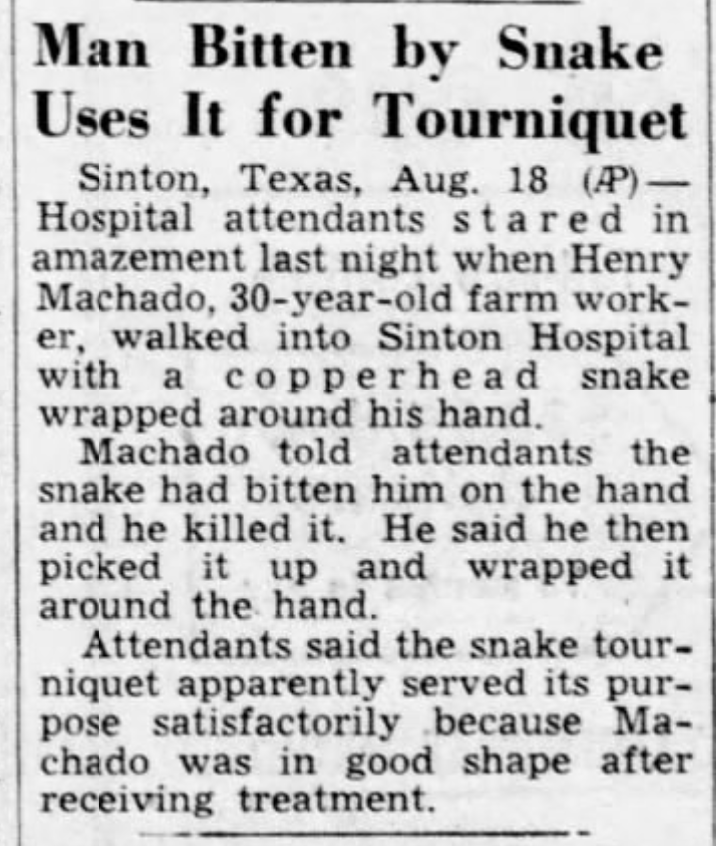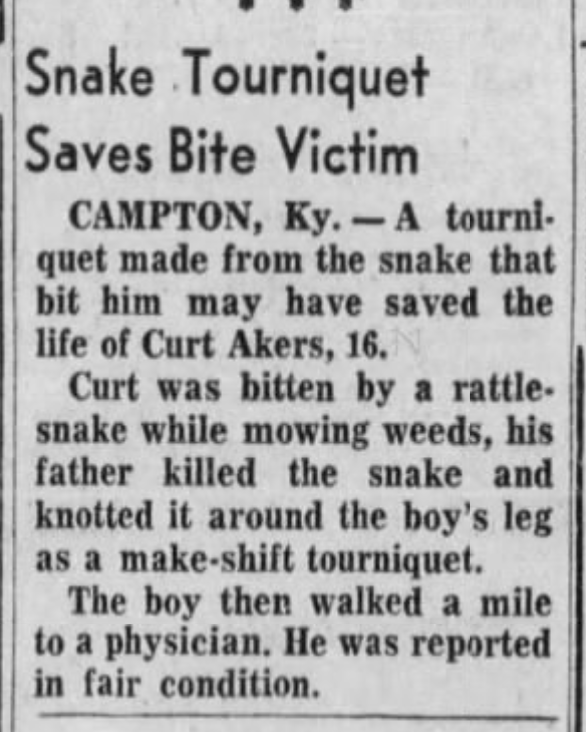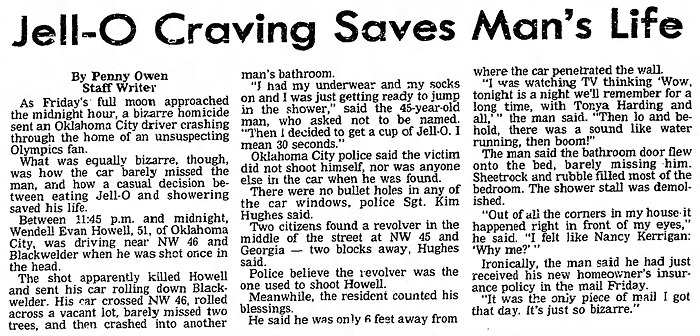1990s
Honeymoon attack
Aug 1993: Frannie Snite was convicted of sneaking up behind her new husband as he sat watching the sunset during their honeymoon, then attacking him with a tire iron. Apparently she was hoping to get a life insurance payout. That's gotta be in the running for the worst honeymoon ever.And yet, it seems like there must be more to the story. I don't think her husband (who survived the attack) ever identified her as his attacker. Her 2013 obituary doesn't mention any of this, nor her five-year prison sentence.
More info: Seattle Times

Lancaster New Era - Aug 18, 1993
Posted By: Alex - Sat Sep 09, 2023 -
Comments (1)
Category: Crime, Wives, Marriage, 1990s
Bunny bandit
Brilliant disguise:
Ellwood City Ledger - Aug 28, 1993
Posted By: Alex - Mon Jul 31, 2023 -
Comments (2)
Category: Stupid Criminals, 1990s
British Rail’s Train Safety Experiment
Jan 1993: In order to find out how close workers could safely stand by the tracks while the new high-speed trains were going by, British Rail announced it would conduct an unusual experiment. It would tether employees to wooden posts located around six feet from the tracks and then measure the force of the slipstream on them as the trains went by at 140 mph.Although members of the public weren't invited to participate in the experiment, about 50 of them volunteered to be guinea pigs anyway.

Sunday London Telegraph - Jan 31, 1993
It was difficult to find out the results of the experiment, but after some digging I located a postscript printed in the Magazine of the Pennine Railway Society. The test never took place. Faced with widespread criticism, British Rail's Health and Safety Executive cancelled it.
Barmy BR proposed to tether workers to trackside posts as high-speed trains thundered past at 140mph. Bosses wanted human guinea pigs to stand as close as 6ft 6in to the expresses to test the effect of their slipstream. Rail
union chief Jimmy Knapp branded the idea barmy and suggested BR use Transport Secretary John MacGregor instead.
The workers would have been attached to posts by special harnesses that would allow them to move to the side but not forward. They would have been asked for their reaction after the trains had roared past. The tests would have helped to determine the distances from trains at which staff could work in safety. They would have taken place between York and Darlington.
However the Health and Safety Executive banned the scheme. The tests have been postponed pending further discussions to see how BR could get the information another way.
One disgruntled railwayman described the scheme as harebrained and said he joined BR to drive a flipping engine, not to play flipping bondage games. However a number of civilians have volunteered to take part in the scheme, preferably dressed in leather and chained from head to toe.
The effect when someone stands in the slipstream of a high-speed train is likely to be they'd get sucked under it. If tied to a post perhaps it would suck their boots off, or maybe they'd go blue in the face.
The idea is on a par to that of abolishing the timetable to stop the trains running late.
Posted By: Alex - Mon Jul 03, 2023 -
Comments (2)
Category: Experiments, Trains and Other Vehicles on Rails, Transportation, 1990s
Troll Barbie
Released in 1992. It was some kind of Barbie/troll doll combo. So, nothing to do with Barbie posting inflammatory comments on social media. Though, by coincidence, the first known use of 'troll', as an Internet activity, also occurred in 1992.
Posted By: Alex - Sat Jul 01, 2023 -
Comments (0)
Category: 1990s, Dolls and Stuffed Animals
Struck by falling dog
I posted a few days ago about a woman who was struck by a sheep that fell off a bridge. Here's a similar (but fatal) case of a motorcyclist hit by a dog that fell off a bridge.So, while I knew that people being hit by falling humans is a recurring phenomenon, evidently so is people being hit by falling animals.

Rapid City Journal - July 18, 1993
Posted By: Alex - Tue Jun 27, 2023 -
Comments (0)
Category: Accidents, Death, Dogs, 1990s
Snake As Tourniquet
I find only three instances of this useful and innovative technique in all my searching. But surely there must be more...?





Posted By: Paul - Mon Jun 26, 2023 -
Comments (6)
Category: Death, Hobbies and DIY, Medicine, Reptiles, Snakes, Worms and Other Slithery Things, 1950s, 1990s
Jello craving saves man’s life
The lesson here is to not hold back if you've got a craving for a snack. That snack may save your life!
Daily Oklahoman - Feb 27, 1994
Posted By: Alex - Sat Jun 24, 2023 -
Comments (1)
Category: Accidents, Jello, 1990s
The Reserved Embrace Theory
A fringe theological theory, advanced by Rev. Robert Kirsch, holding that a Catholic priest could have sex without violating his vows as long as the sex was passionless. The church rejected his theory.
Albuquerque Journal - Nov 18, 1992 (click to enlarge)
Kirsch died in 2005. According to his obituary, the lawsuit described above never went to trial.
Posted By: Alex - Tue Jun 20, 2023 -
Comments (2)
Category: Religion, 1990s, Sex
The Naked Guy of Berkeley
Andrew Martinez attended UC Berkeley during the early 1990s. While there he became known as the "naked guy" because of his refusal to wear clothes — ever. Text from the magazine of the Cal Alumni Association:
image source: East of Borneo
What became of Martinez:
Posted By: Alex - Mon Jun 12, 2023 -
Comments (1)
Category: Eccentrics, Nudism and Nudists, 1990s
Food Bombs
I imagine this would have been the most expensive way possible to deliver humanitarian supplies. Though also the fastest.
Modesto Bee - May 30, 1992

Weekly World News - July 7, 1992
Posted By: Alex - Thu May 18, 2023 -
Comments (5)
Category: Food, 1990s, Weapons

| Who We Are |
|---|
| Alex Boese Alex is the creator and curator of the Museum of Hoaxes. He's also the author of various weird, non-fiction, science-themed books such as Elephants on Acid and Psychedelic Apes. Paul Di Filippo Paul has been paid to put weird ideas into fictional form for over thirty years, in his career as a noted science fiction writer. He has recently begun blogging on many curious topics with three fellow writers at The Inferior 4+1. Contact Us |




